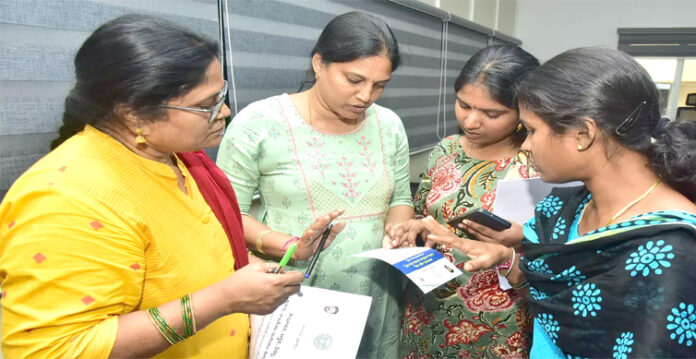The ongoing Caste Census Survey, also referred to as the Comprehensive Household Survey, has sparked debates and hesitancy among residents, with a significant number expressing reluctance to disclose personal information. Enumerators conducting the ground-level survey report frequent resistance and skepticism regarding the survey’s purpose and data handling.
A common concern raised by individuals is the redundancy of the survey, given the extensive personal information already linked to Aadhaar cards and other government databases. Residents are questioning the need to share details such as profession, income, caste, and property ownership again, citing potential misuse and a lack of transparency in how the data will be used.
Karthik, an enumerator from Medchal-Malkajgiri, stated, “About 5% of individuals outright refuse to provide their details or fill out the forms. Many scrutinize the forms, questioning the necessity of specific data points before deciding not to share their information.” In such cases, enumerators are left with no choice but to document minimal information, such as family members’ names, house numbers, and occasionally contact numbers.
Also Read: Harish Rao Raises Concerns Over Caste Census Documents Found on Road
The skepticism is particularly evident among professionals who feel disconnected from government welfare schemes. D. Naveen, a software engineer, explained, “Why should I disclose details about my profession, income, or property? The agenda behind these surveys should be clear. I pay taxes and vote responsibly, but no one in my family benefits from government schemes. I don’t see the necessity of participating in this survey.”
Further challenges arise with residents who have properties in different locations. Individuals renting homes in Hyderabad but owning property in their native villages face the burden of filling out forms twice to avoid discrepancies. Similarly, inter-state migrants, such as P. Jagadeesh, who moved from Mumbai to Hyderabad, find themselves in a grey area. “I own property and completed my education in Mumbai. I’ve only been in Hyderabad for two years, so I feel irrelevant to this survey,” he said.
The growing resistance points to a broader issue of trust in government initiatives. Critics of the survey argue that its objectives remain unclear, fueling concerns over data privacy and misuse. Experts suggest that a lack of awareness campaigns and assurance about the safe handling of collected data has contributed to the public’s apprehension.
For the Caste Census Survey to achieve its goals, addressing public concerns is crucial. Transparency regarding the survey’s purpose, data usage, and the benefits it aims to provide can help build trust among citizens. With the digital integration of Aadhaar and other government systems, the redundancy of data collection also needs to be minimized to alleviate public frustration.
The government must also consider tailoring its approach to accommodate professionals, migrants, and property owners while ensuring that the survey’s execution respects privacy and fosters inclusivity.
(This story is sourced from a third-party syndicated feed. Raavi Media takes no responsibility or liability of any nature. Raavi Media management/ythisnews.com can alter or delete the content without notice for any reason.)


